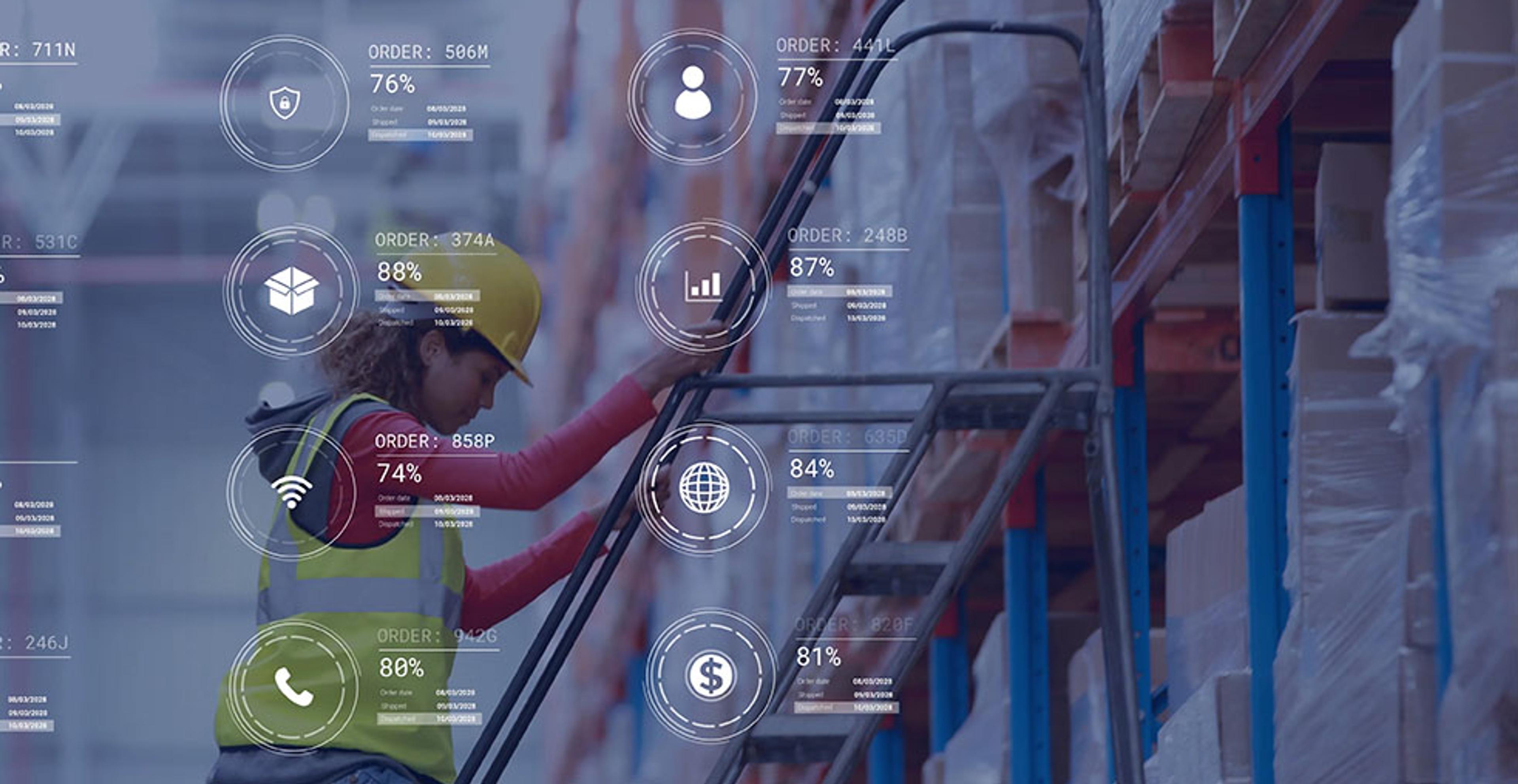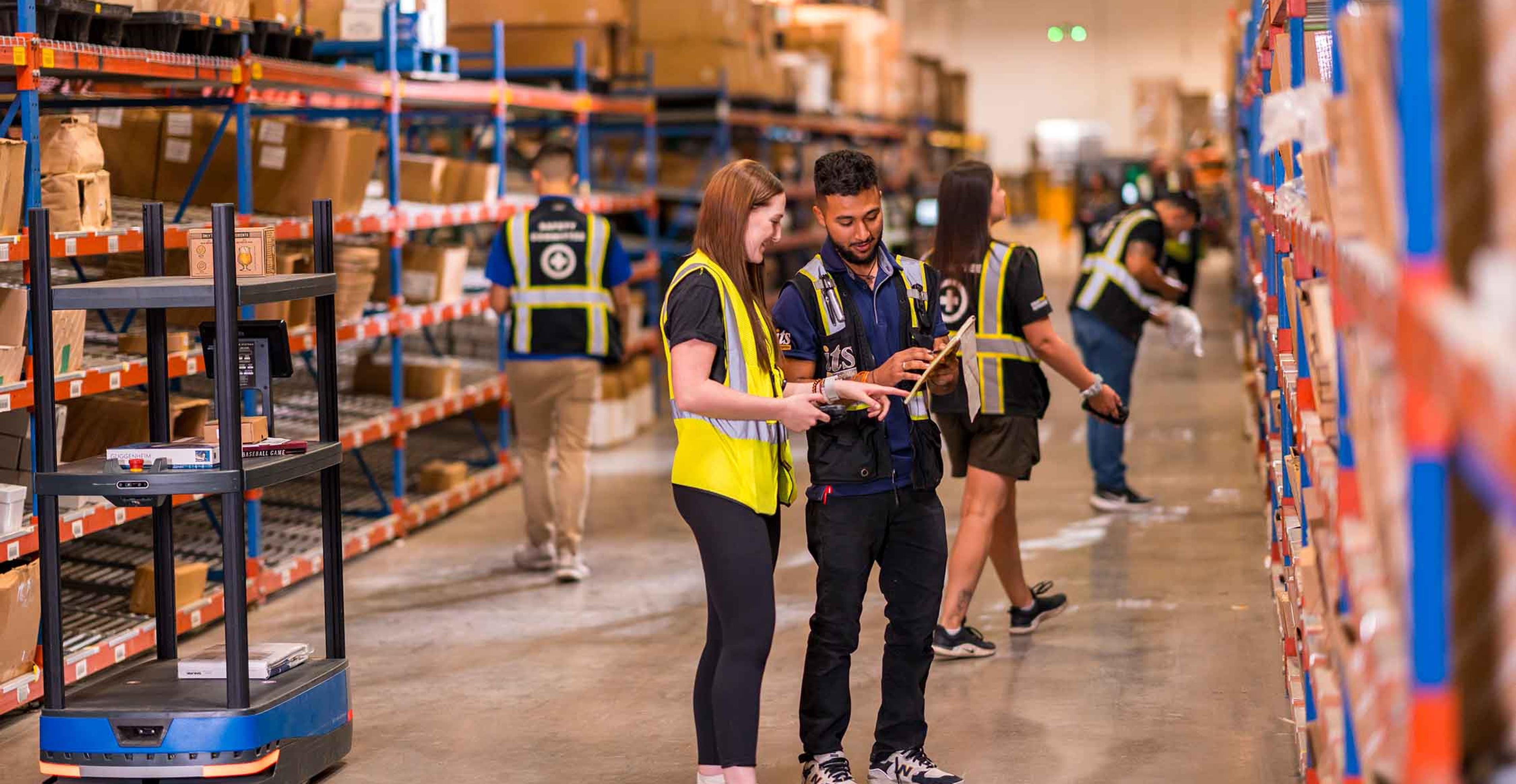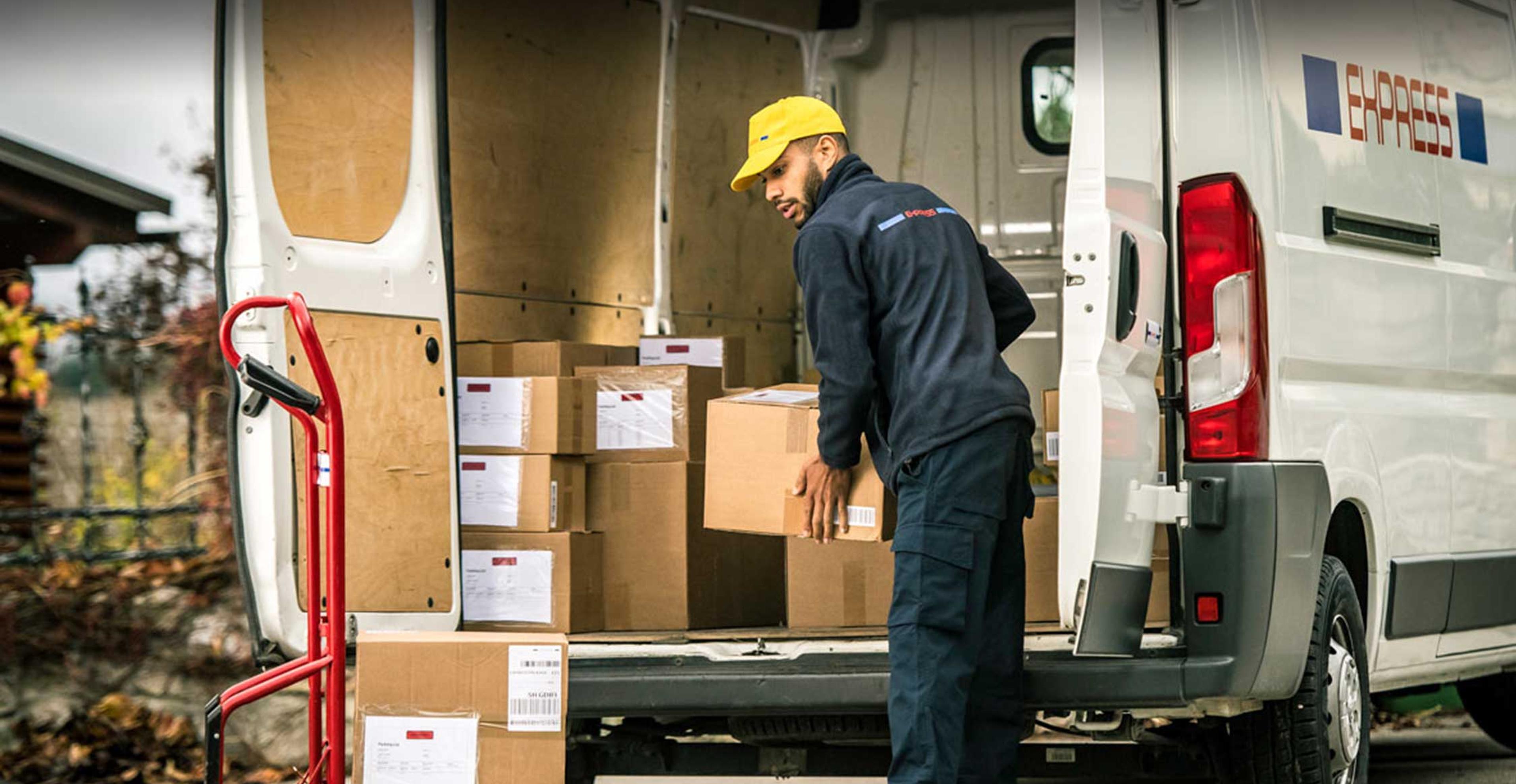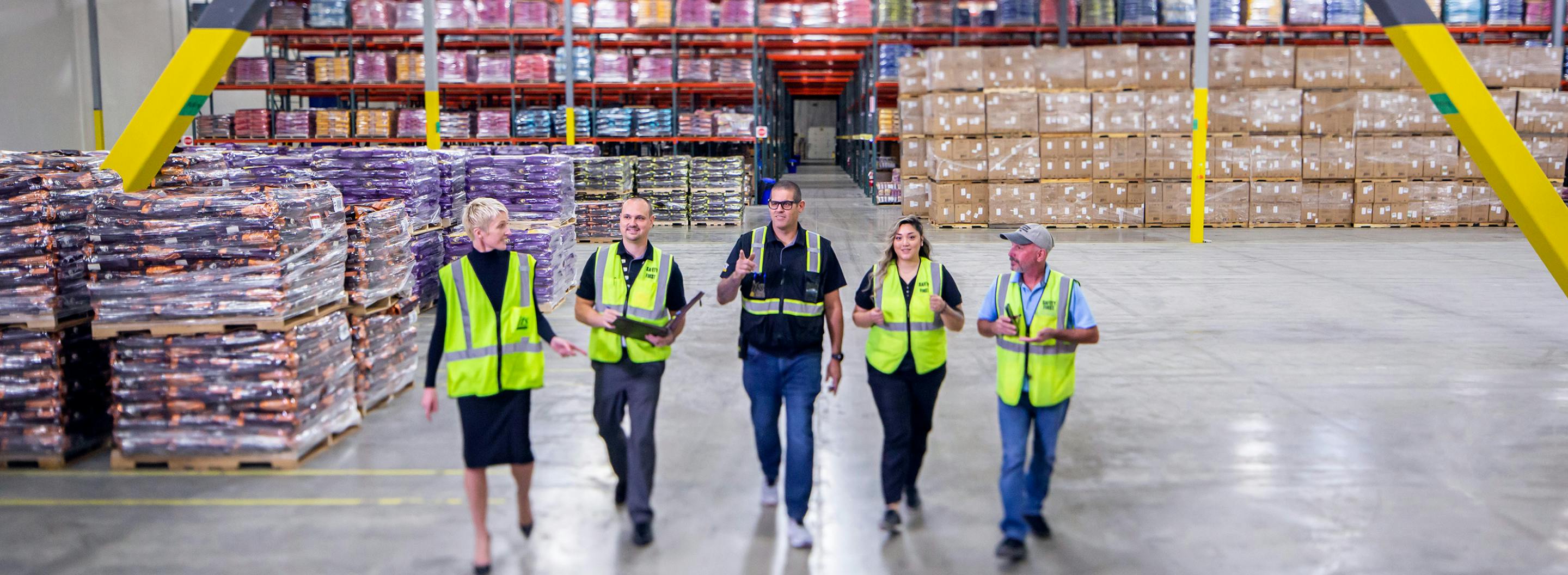How to choose a 3PL provider: 9 steps to find the right third party logistics partner

Outsourcing supply chain operations to a third-party logistics provider (3PL) can help businesses scale, save money, increase efficiency, and provide a better level of customer service. Most importantly, outsourcing to a logistics provider frees businesses up to focus on their own development and goals without getting bogged down by the day-to-day challenges of running a supply chain.
Choosing a 3PL isn’t an easy decision. It’s also a very important decision to get right. A 3PL partnership is a major investment that can take months to implement, so it’s worth putting in the research to ensure that a provider is the right fit. Doing so will save significant amounts of time, money, and headaches later.
There are nine key considerations businesses should keep in mind when they’re evaluating a potential partner. This is by no means an exhaustive list. Each business situation is unique, and research and vetting can always go deeper. However, these considerations are a good start when it comes to choosing the right 3PL provider.
How to choose a 3PL provider
Know what to look for and ask the right questions
There are a lot of 3PL companies out there, and they all offer different services, expertise, and specialties. The important characteristics that set some above the rest include reliability, handling times, inventory management, scope of services, carrier relationships, small parcel rates, current clients, and specializations.
Businesses should carefully consider the different aspects of their operations and make sure that a 3PL can accommodate any specific needs — Fulfillment by Amazon (FBA), food grade warehousing, fulfillment center locations, ecommerce fulfillment, and so on. Ideally, a 3PL should not only be able to handle a business’s unique needs, but also have a proven track record of doing so in that business’s specific industry.
Take an in-depth look at a 3PL’s technology
Whether a business has an off-the-shelf shopping cart system or a custom-built ERP inventory management system, the ability for a 3PL to seamlessly integrate with any existing technologies and processes should be a core consideration.
A 3PL’s technology should make operations easier and more efficient while increasing visibility across the entire supply chain. That visibility should go deeper than basic metrics and supply actionable data to inform timely business decisions.
Quality of data makes all the difference, especially in industries that experience peak seasons and dramatic fluctuations in demand. The better the data, the better the decisions and vice versa.
Evaluate scalability
Assuming everything goes well, outsourcing to a 3PL is a long-term commitment with a lot of investment behind it. The needs of a business today may not be the needs of that same business tomorrow. Growth is almost always a part of the plan, and businesses will want to choose a 3PL that can scale along with their growth curve.
A lot of scalability comes down to a 3PL’s capacity, where more is almost always better. The more capacity, the better the ability to accommodate business growth and effectively manage unexpected surges in demand.
Evaluate stability
A steady supply chain is a profitable and successful one. Economic fluctuations happen, and when they do, businesses with a steady supply chain have a much better chance of coming out on top.
A newer 3PL may be able to handle fluctuations, but there’s no substitute for a proven track record. Veteran 3PLs will have more experience to back up their sales claims. Even then, it’s still a good idea to put in extra due diligence.
If possible, businesses should ask for a prospective 3PL’s current customer list to use as references during the selection process. This will help ensure that a potential 3PL has a history of reliable methods, practices, and relationships.
Look at capabilities and specialties
Every industry comes with its own unique set of warehousing, transportation, distribution, and fulfillment needs. Most 3PLs handle a variety of industries, but some will be more specialized in certain areas than others. Businesses should do their best to choose a 3PL whose core competencies and abilities align with their specific industry.
Here are some examples of industry-specific considerations: Is a 3PL familiar with the industry’s peak seasons and can they handle surge volumes? If it’s an industry with a lot of returns like apparel, how dialed is reverse logistics? If kitting, assembly, or light manufacturing are part of the picture, can they meet those needs efficiently? Can they ship internationally? And can all those capabilities be scaled to meet business growth or sudden fluctuations in demand?
These are all good questions to ask during the vetting process.
Consider brand image and customer service
Brand image is something else to look at when choosing a 3PL. Partnering with a 3PL means more than moving freight. It means trusting them with brand representation, often at the customer service level.
Outside of retail locations, a customer’s most tangible interaction often ends with the 3PL — whether that’s a package sitting on a doorstep or a truckload pulling into a receiving dock. The right 3PL should care about a business’s brand image and support the level of service provided to customers, if not improve it.
Customer service, responsiveness, and communication should be some of a good 3PL’s highest priorities. The best 3PLs will practice continuous improvement and suggest and implement best practices to help businesses stand out from the competition.
Ask about customization
In most cases, businesses will already have technologies and processes in place before they choose a 3PL. Part of finding the best 3PL fit means finding one that can help a business leverage their existing technologies, industry experience, and processes to optimize what’s already there.
Shiny, new technologies and flashy warehouse management systems are great and have their place, but they can also be expensive to implement and take more time to get up and running. Finding a 3PL that offers custom software solutions that easily integrate with a business’s existing technologies helps everything get off to a better start. The more custom a 3PL fit can be, the better.
Look for omnichannel expertise
In modern commerce, consumer demand is fluid and dynamic across a variety of retail channels. Omnichannel distribution and fulfillment has become the new industry standard, and businesses need to be able to meet their customers at the right place, at the right time, while delivering the best possible customer experience.
That means finding a 3PL that can handle everything, from D2C order fulfillment and B2B retail distribution, to subscription box fulfillment, and everything in between. An omnichannel 3PL should be able to understand the nuances of a business’s distribution channels, adapt quickly between all of them, and deliver top-notch customer service every step of the way.
Ensure continuous improvement is a priority
This is one of the most important factors to look for in a 3PL. Once a partnership has been established, a 3PL becomes an extension of the business they are working with. A third-party logistics partner that is committed to excellence and continuous improvement will use proven solutions and new data to constantly review, refine, and improve their processes. Those improvements pass on to the businesses they work with in the form of better results, enhanced customer service, and cost savings.
Advantages and disadvantages of using a 3PL partner
Choosing the right third party logistics provider can help businesses improve their operational efficiency and save money, but outsourcing to a 3PL isn’t always the right move. There are advantages and disadvantages that need to be considered before making the move.
Advantages of third-party logistics partner
A 3PL partner can help businesses when it comes industry expertise, scalability, and best practices, but there are many other advantages to consider.
Scalability
The importance of scalability has really come into focus with the rapid growth of ecommerce and other online channels. Using a 3PL gives businesses the ability to scale and meet demand surges without having to invest in their own warehouse space, equipment, and labor.
With a 3PL partner, scalability works both ways; it’s there when the business needs it and not costing extra money when it doesn’t, which is a huge advantage.
Time and money savings
This is one of the most obvious advantages of using a 3PL because it directly impacts a business’s bottom line. Using a 3PL eliminates the need to invest in heavy assets — fulfillment centers, warehousing space, inventory management, technology, transportation, employees, and so on.
Having and maintaining in-house assets can be very expensive, and for many businesses, there comes a point where it no longer makes fiscal sense. A 3PL provider can save businesses on their expenses and increase efficiency at the same time.
Continuous improvement capabilities
There’s always room for improvement, especially when it comes to supply chains. But for a business with limited resources, making those improvements is easier said than done.
Outsourcing to a 3PL provides businesses with the power of dedicated resources, improved technology, and expertise. A good third-party logistics company will continuously improve a business’s supply chain and customer service while simultaneously cutting down on costs, which ultimately leads to more profitability.
3PLs offer logistics industry expertise
Finding the right 3PL partner isn’t just about assets. It’s also about expertise. 3PLs specialize in logistics; it’s all they do, and many of them do it incredibly well. The expertise that comes with a good 3PL is invaluable — knowledge of best practices, manufacturing trends, and market conditions. A 3PL will be able to offer businesses suggestions and solutions that work well in their specific industry and help them avoid common, and not-so-common, mistakes.
Less focus on logistics, more focus on business development
Running a supply chain is a high-maintenance, resource-intensive task. Outsourcing to a 3PL allows businesses to enjoy the benefit of industry experience and expertise without exhausting their valuable internal resources, which are better focused on running and improving the actual business.
Disadvantages of third-party logistics partner
Using a 3PL is not for everyone, and there are cons that need to be recognized.
Less engagement in operational execution
One of the biggest disadvantages of outsourced logistics is that businesses become less engaged in the day-to-day, tactical details of their supply chain operations. This can result in the loss of internal skills and infrastructure needed to independently run a supply chain, which could become a problem if the business ever wants to take the responsibility back.
Limited direct insights into logistical operations
Less direct visibility is another consequence that comes with outsourcing to a 3PL service provider. Handing off the day-to-day operations means that businesses won’t have as much direct visibility. However, most 3PL providers offer operational data and insights on a regular basis. The depth and regularity of data and insights will depend on the 3PL, which is why it’s so important for businesses to properly research potential partners before moving forward.
Concerns about image
Outsourcing fulfillment can feel like giving up some control of brand management, and if businesses aren’t careful, it can become that. Businesses lose control if they choose a 3PL provider that doesn’t value their brand. Businesses can avoid this by choosing a 3PL that can commit to the same high standards of detail, customer service, and brand management that the business holds itself to. Going with that level of 3PL is never going to be the cheapest option, but the extra cost really makes a difference in this area.
Find out if working with a 3PL is the right move
ITS Logistics and its team have years of expertise in every type of distribution and fulfillment service, including dedicated fleet services, drayage and intermodal, asset-lite transportation, and more.
Ranked #19 in North America for asset-lite transportation and #11 for drayage and intermodal, ITS Logistics works with some of the best and largest businesses around the globe, providing creative logistics solutions that meet business needs and exceed expectations.
With the highest level of service, unmatched industry experience and work ethic, and a laser focus on innovation and technology– the team at ITS strives to improve the quality of life for its partners by delivering excellence at every turn.
Call ITS Logistics today at (775) 574-4278, or reach out online to learn more about the company and find a creative logistics solution that will work for your business.



